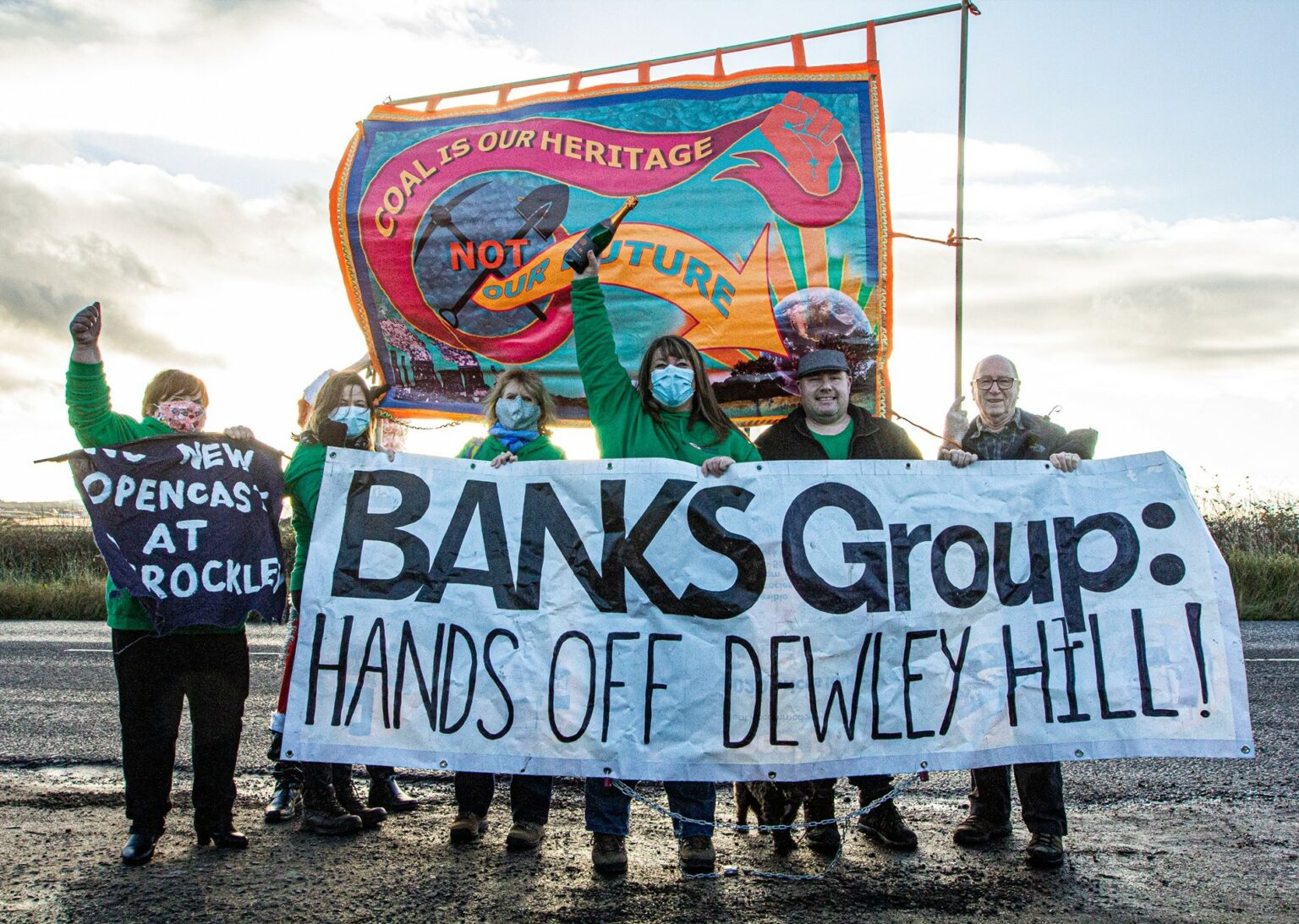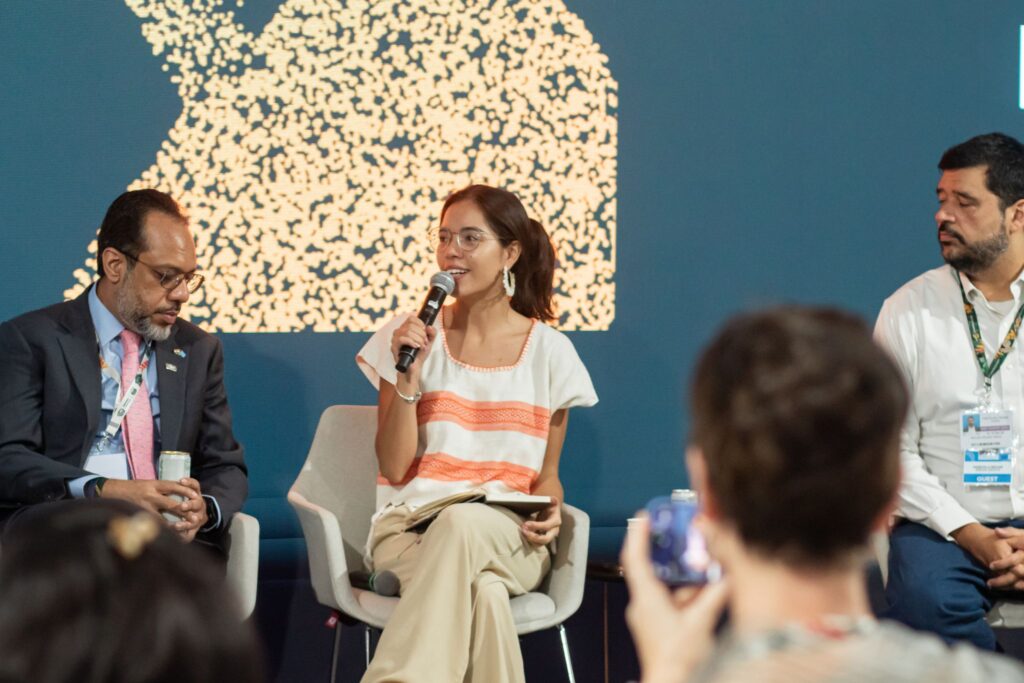Last December, a cross-party council planning committee unanimously rejected what could very well be the last opencast coal application in the UK, proposed at Dewley Hill, an area of greenbelt outside Newcastle.
The developer has just declared it will not be appealing the decision, while its latest financial statement indicates the company, Banks Group, does not expect to get permission for any new mines, because of a lack of “political will”. So after 80 years, we cautiously celebrate an end to the ecologically ruinous method of opencast coal extraction.
The mining technique was originally introduced in the 1940s as an extreme wartime measure, with minimal labour needed and maximum pace. It involves ripping up huge areas of land, replacing diverse ecology and vital habitats with a vast pit, and industrialising the countryside. It expanded under Margaret Thatcher, and some of the first people to contest new opencasts were coal miners, since it was seen to hasten job losses at traditional pit mines and ruined the places miners lived in.
Over the past 20 years, as awareness of climate change has grown and word of the local injustices from opencast coal mining spread, thousands of people across the country and beyond have travelled to support the battles to stop opencast coal.
These campaigns had been quietly fought for decades, in isolated pockets in the Welsh Valleys, the Pennines, the Scottish Highlands, by people who don’t identify as activists.
Since 2008, at least 23 applications to stop opencast coal in the UK have been stopped by grassroots campaigns, with many more going unrecorded. Currently, only two opencast mines operate in the UK thanks to the resistance of ordinary people standing up for their local environment and climate justice.
The people behind these victories are not NIMBYs (Not-In-My-Back-Yard). The campaigns have succeeded because coalfield communities supported each other to take down an entire industry, rather than shift the problem from place to place. The planning system deliberately assists planners and is inaccessible to most people who have no experience of navigating it. So knowledge-sharing and solidarity between communities have been vital.
‘Battle Not Yet Over’
The end of opencast coal is down to a rich network of people and grassroots organisations who are mindful of the bigger picture beyond their backdoors: that fossil fuel companies are driving the climate crisis and wrecking the biosphere in pursuit of profit.
Not all the campaigns have been won yet, though – despite the recent refusals, opencast coal still operates in the UK and leaves an ugly legacy. Residents of Dewley Hill won’t thankfully see their local wildlife destroyed by the mine or live with daily pollution from coal dust and noise.
But residents of Merthyr-Tydfil in South Wales still live alongside a giant opencast mine called Ffos-y-Fran that has been in operation for more than 14 years, while the standard and likelihood of a “clean-up” after it closes next year remain a source of concern.
The South Wales and Scottish coalfield is littered with abandoned opencast sites – vast gaping black holes in the ground, where there used to be footpaths and diverse ecosystems, even country roads connecting towns. Now, many years after the mining has ended, there is only dust and spoil, where companies have extracted the natural resources and subsequently liquidated, often moving their assets into offshore third–party companies to avoid clean-up liabilities.
The end of opencast isn’t the same as the end of coal, either. As anyone following environmental developments is aware, the proposal for a 30-year underground coking coal mine in West Cumbria is the latest battleground, a public enquiry on which is set to take place in September. If the mine goes ahead, it could be the start of a new frontier of coal in the UK for making steel, with Australian company New Age Explorations Ltd poised to apply to start a Longwall mine in Kirkcudbrightshire, south-western Scotland.
Finally, a much more insidious form of support for the coal industry still at large in the UK is in the form of finance. The City of London remains a backbone of the planet’s coal industry, hosting mining multinationals, their financiers, banks, and insurers.
These institutions are part of a colonial legacy still blighting the Global South and embedded in the UK’s economy. The movement to stop Adani’s infamous mega-mine in indigenous territories in Queensland, Australia, calls for action against the project’s financiers as a key strategy for stopping the mine, which would act as a gateway to a vast coalfield if it went ahead.
The victory at Dewley Hill and the end of opencast coal was arrived at through decades of mutual support and lessons handed down, broad coalitions of caring and driven people, and tipped over the line by the relatively recent (and belated) broader public urgency around climate justice. To move beyond coal for good, the people still fighting it in the UK and globally need this solidarity to be maintained.
Subscribe to our newsletter
Stay up to date with DeSmog news and alerts






